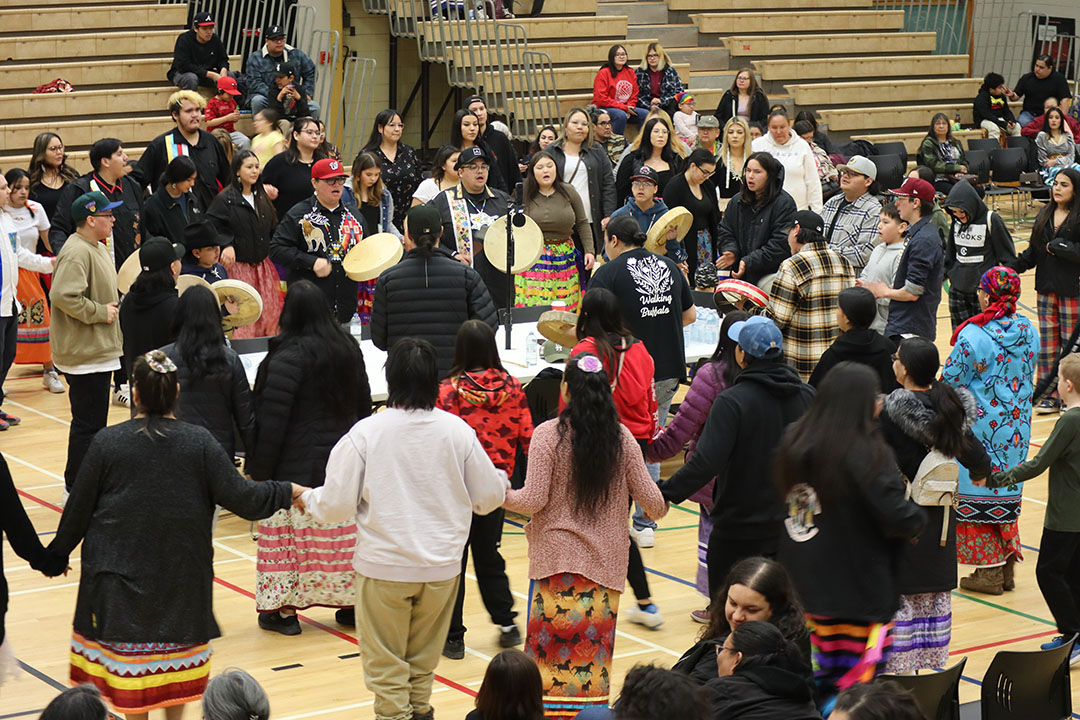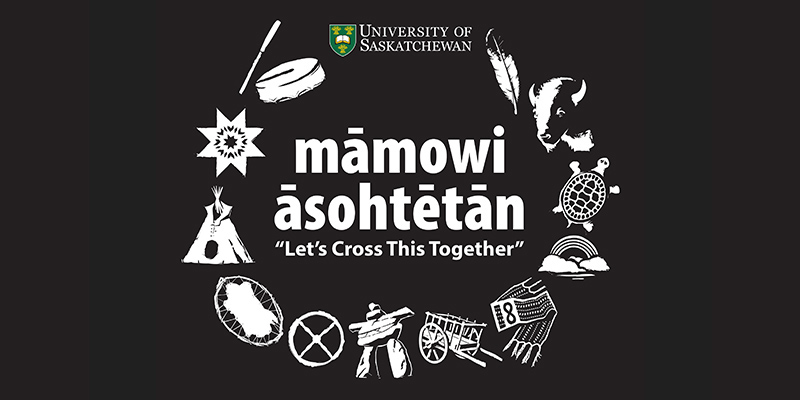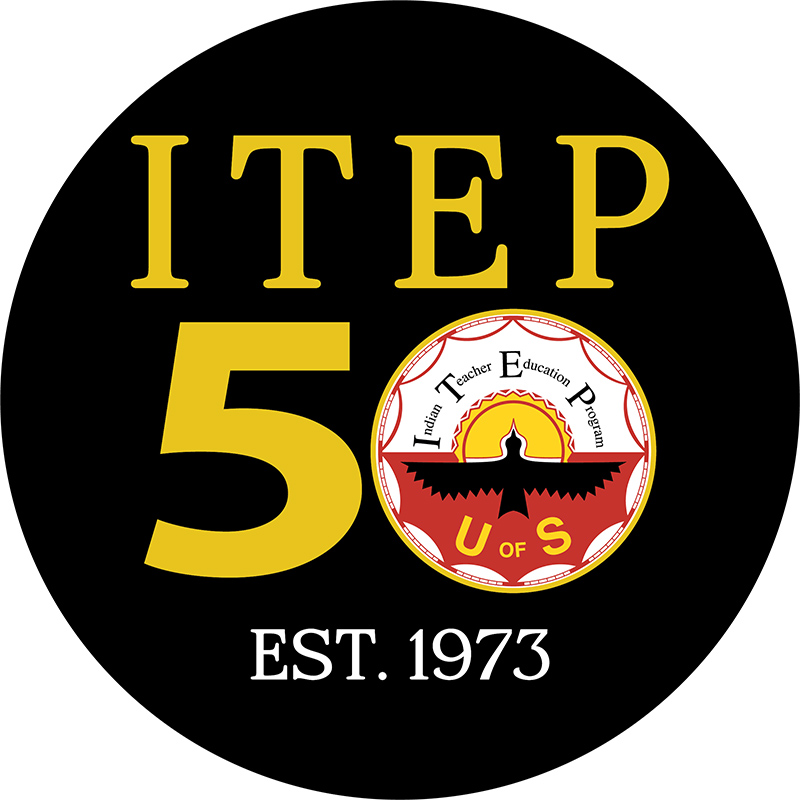
‘This program builds leaders’
The 6th annual māmowi āsohtētān Internal Truth and Reconciliation Forum on April 28 will celebrate USask’s Indian Teacher Education Program (ITEP)
By Shannon BoklaschukAn upcoming internal forum at the University of Saskatchewan (USask) will focus on the Truth and Reconciliation Commission of Canada (TRC) Calls to Action as they relate to education, and how USask can continue to respond to the TRC’s recommendations in meaningful and impactful ways.
“I think it’s important to continually revisit the work that we’ve been charged with doing,” said Dr. Angela Jaime (PhD), interim vice-provost of Indigenous engagement. “It’s our responsibility as an institution and our honour to do this work.”
Hosted by the Office of the Vice-Provost Indigenous Engagement (OVPIE) and facilitated by the Mistatimōk Committee, the 6th annual māmowi āsohtētān Internal Truth and Reconciliation Forum on April 28 will celebrate 50 years of success in USask’s Indian Teacher Education Program (ITEP). Students, alumni, and leaders from ITEP will share their experiences leading, attending, and teaching within the program and how those experiences have impacted their lives today.

The annual māmowi āsohtētān Internal Truth and Reconciliation Forum was created in response to the 94 Calls to Action that the TRC made in 2015 to redress the legacy of residential schools and advance the process of Canadian reconciliation. The forum provides an opportunity for all members of the USask community to gather and constructively and respectfully dialogue and plan for the university environment they need and want. The māmowi āsohtētān Internal Truth and Reconciliation Forum began in 2017 to continue the discussion after USask hosted the first national Building Reconciliation Forum in 2015.
“There is a long history of what we’ve done with the event,” said Carson Magnuson, OVPIE’s project manager, who noted this year’s māmowi āsohtētān Internal Truth and Reconciliation Forum will focus on the TRC Calls to Action on education, ITEP, and ITEP’s connections to the 1972 Indian Control of Indian Education policy paper.
ITEP, located in USask’s College of Education, was established in 1973 to increase the number of First Nations teachers in Saskatchewan and other parts of Canada to meet the social and cultural needs of Indigenous communities, as well as to contribute to school systems where Indigenous and non-Indigenous children make up the student population. This year, ITEP is celebrating 50 years at USask and is hosting 50th anniversary events to mark the milestone. This includes the ITEP Student Council Round Dance, which was held on March 31 in the Education Gym.
“ITEP was built because it was what our Elders wanted: to strengthen identity and culture and provide opportunities to build strong Indigenous people and communities through education,” said Yvette Arcand, director of ITEP and a 1997 graduate of the program. “Today, Indigenous pedagogies and epistemologies are embedded not only in our schools and provincial curriculum, but that desire to engage with and learn about Indigenous culture is throughout larger society as well. ITEP was a part of that.”

ITEP was developed in the late 1960s at the request of Indigenous people in Saskatchewan. In 1969, the Federation of Saskatchewan Indian Nations—now the Federation of Sovereign Indigenous Nations (FSIN)—created an education task force, which developed a comprehensive review of Indigenous education in Saskatchewan.
This work was further built upon in 1972, when the National Indian Brotherhood—now the Assembly of First Nations (AFN)—presented a policy paper, Indian Control of Indian Education, to the federal Minister of Indian Affairs and Northern Development. As a summary on the AFN website notes, “the 1972 policy paper proposed that the Government of Canada and First Nations work together to put in place the financial and educational resources needed to enhance the success of First Nations learners through Indian Control of Indian Education. To support this policy, the document laid out the principles and values underlying First Nations learning, starting with a Statement of Values.”
In February 1973, the first students began studying in the Indian Teacher Education Program at USask. In April 1980, the Saskatchewan Urban Native Teacher Education Program (SUNTEP) also began, with the goal of ensuring that people of Métis ancestry are adequately represented in the teaching profession. SUNTEP is delivered by the Gabriel Dumont Institute (GDI) in partnership with the Ministry of Advanced Education, USask, and the University of Regina.
Since ITEP began 50 years ago, about 3,000 teachers have graduated from the program. For Magnuson, a USask graduate who earned his Bachelor of Education degree through ITEP in 2018, the program is an example of the TRC’s recommendations in action.
“When I look at the TRC Calls to Action around education—which were released during the time I was in ITEP—those Calls to Action were something that were actively occurring in my program,” he said. “Those things are functioning, and have been functioning, throughout the Indian Teacher Education Program for 50 years.”
Magnuson said ITEP’s roots in the Indian Control of Indian Education policy paper, as well as the continued support he received from people in the program, helped to ensure his success as a USask student. Magnuson’s brother was also an ITEP student, and that inspired Magnuson to enroll in the program.
“That’s a very common story. This program builds leaders,” he said.
The 6th annual māmowi āsohtētān Internal Truth and Reconciliation Forum will include two 30-minute keynote addresses focused on the historical context of ITEP and on Indian Control of Indian Education. There will also be two panel discussions—called living-room visits—that will explore leadership in ITEP over 50 years and how it relates to the TRC Calls to Action, and the ITEP student experience. Magnuson said the concept for the living-room visits was inspired by the visits he had with his late kôhkom (grandmother) in her living room, and the stories that she shared. Sol Sanderson, founding leader of the AFN and an expert in Indigenous governance and the assertion of the legal rights of Indigenous Peoples, will be joining the forum to share his knowledge and involvement in the development of ITEP.
Jaime said it’s important for all members of the USask community to think about the TRC Calls to Action and how they can be uplifted in the daily learning, teaching, research, and employment activities on campus.
“It has to be an everyday way of walking on the right path,” she said.
Dr. Airini (PhD), USask’s provost and vice-president academic, said USask is fortunate to have been gifted an Indigenous Strategy—ohpahotân | oohpaahotaan “Let’s Fly Up Together”—that was written by, and with, Indigenous Peoples. As a companion document to the University Plan 2025 nīkānītān manācihitowinihk | ni manachīhitoonaan (“Let us lead with respect”), it calls for meaningful and respectful action to advance Indigenization and to support transformative decolonization leading to reconciliation.
Airini said the Indigenous Strategy will guide USask as the university community continues to work together to answer the TRC Calls to Action and to fulfill the aspiration of transformative decolonization leading to reconciliation.
“Our vision at USask is to be an outstanding institution of research, learning, knowledge-keeping, reconciliation, and inclusion, with and by Indigenous Peoples and communities,” she said. “We will realize this vision with the TRC Calls to Action, our Indigenous Strategy, and the University Plan 2025 leading the way.”
All faculty, staff, and students are invited to attend the 6th annual māmowi āsohtētān Internal Truth and Reconciliation Forum, which will be held on April 28, 2023, from 8:30 am – 2:15 pm in Marquis Hall. Attendees are asked to register online in advance.
Together, we will work towards Truth and Reconciliation. We invite you to join by supporting Indigenous achievement at USask.

